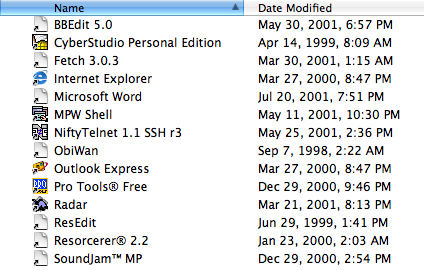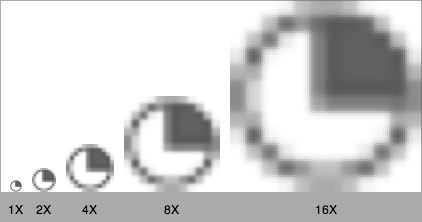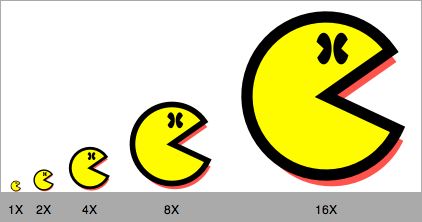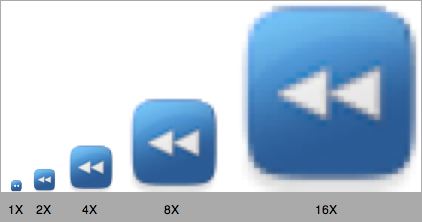A Glance Back
November 25th, 2006Have you ever noticed how faulty the brain’s mechanism for detecting “freshness” can be? If you’re anything like me, you find yourself foolishly clinging to the belief that something is new, long past its certain staleness. For instance, I still think of The Cure’s Friday I’m In Love as “their new song,” almost fifteen years after its release.
The same mental bug appears at more depressing moments. We might spend a decade feeling essentially the same about our health and vitality, until we look into the mirror one groggy morning and see a particularly aged face staring back at us. Before we know it, we’re yesterday’s news. So it goes with pop music, our bodies, and with the computers we use every day. Having fun yet?
While I was working at Apple, I had the privilege of contributing to the transition from Mac OS 9 to Mac OS X, as a member of the Core Services group. At that time, there was no doubt in anybody’s mind that Mac OS X was new. It was so new in fact, that for a long time nobody took it seriously. As pre-10.0 developer previews rolled off the line, Mac OS 9 loyalists insisted that it would never supplant their favorite operating system. Mac OS X was just some newfangled thingamajig that the crazy kids were playing with.
Then lots of years passed and, lo and behold, almost nobody uses Mac OS 9 anymore. I was using Spotlight to try to track down a copy of Resorcerer, when I stumbled upon this old folder full of aliases, in an old backup directory from a home computer when I was still on Mac OS 9:

What is this list of sundry items? Well it’s the folder of aliases I put in my Mac OS 9 “Apple Menu items” folder. The quick-access list of items that I could easily access at any time. Now, I’m not sure how accurate this list is as a reflection of my everyday application usage. At this time I was probably using Nitin Ganatra’s excellent Malph utility for most of the same purposes. I’m also not sure how much different my work machine’s list would have been. This was my personal machine at home, which I obviously used to some extent for work development. What strikes me today, looking back, is that almost every one of those applications has been supplanted by something else. They were all very appropriate to my computer life only 5 or 6 years ago, but now many of them are ancient relics.
Let’s go through each of them and figure out what used them for then, and what I use now to achieve the same goals.
BBEdit. To be honest I’ve never used BBEdit as my 100% full-time editor, but it’s almost always “been around” in one form or another for something important. At this time, I probably was using MPW for most of my text-editing needs, but would occasionally open up BBEdit to do some particularly advanced search & replace, or to sort by columns or something. I still use BBEdit largely in this capacity, though one of the major ways I use it these days is as a file comparison tool (I find it more reliably with strange line endings than Apple’s FileMerge application).
CyberStudio. I can’t remember whether this application was called “GoLive” at the time, but I’m pretty sure it was. Adobe had come to Apple for one of our irregular (at the time) beer bashes and offered us free copies of the app. I used it to design my personal web page for some time. Eventually I switched to Macromedia Dreamweaver, which I used for a few more years, before finally relying mostly on manual CSS editing.
Fetch. For a long time, if you wanted to use FTP from a Mac, there were really only two choices: Fetch or Anarchie (now Interarchy). I dabbled in both but mostly found myself using Fetch for the rare occasion on which I needed to push files. These days, I tend to use Fugu for uploading to my SSH enabled servers. It’s got a lot of rough edges, but it’s free and basically functional. If I needed to do more file transferring, I’d probably use Transmit, like everybody else.
Internet Explorer. I remember sitting in the lab at Apple, as a QA Engineer in 1996 or so. Everybody was still using Netscape Navigator, but this new Internet Explorer was grabbing our attention. My, it was a nice upgrade at the time. IE came with us to Mac OS X in the early days, but of course Safari eventually came along and proved an easily superior alternative to the aging IE.
Microsoft Word. Like everybody else in the world, I had to keep a copy of this app around just to be able to reply to the emails from marketing or whatnot, which were inevitably in Word format. These days the popularity of PDF has gone a long way towards eliminating the need to use Word as a generic document format. I do think Word can be a pretty nice word processor, but when I wrote the thesis for my BA in Music in 2005, I used Apple’s Pages with a good deal of satisfaction. It’s what I would use again if I had to do any substantial amount of non-blog writing at this point.
MPW Shell. At this time, most of the Mac development world was using CodeWarrior for day-to-day development purposes, but in my group at Apple everything was still tightly bound to MPW. It made up my editor and source control management (projector – yuck!), with MacsBug serving as the debugger. These days of course, it’s all Xcode and GDB. I miss some things about MPW, especially the highly (and easily, compared with Xcode) customizable menus. And I miss some things about MacsBug. But on the whole, Mac OS X in 2006 provides a much better environment for development than MPW on Mac OS 9 did.
NiftyTelnet. When I first worked at Apple in 1994, I was bit of a freak to my coworkers. In those pre-OSX days it was rather uncommon for anybody at Apple outside of the A/UX group to be interested in telnetting to a UNIX machine. But I had just come from UC Santa Cruz, and was tied up in a certain amount of command line computing lifestyle there. For instance, I wanted to be able to check my email. I’m not sure what I used in those earliest days. Possibly ZTerm? All I know is as life went on I still had the occasional need to connect back to my school’s alumni server, and eventually it became NiftyTelnet with its SSH support that best served the purpose. Of course on Mac OS X I still do quite a bit of ssh connections, but it’s almost always through the standard command-line tool that ships with the operating system.
ObiWan. Oh, ObiWan, how I adored you! This utility was like my third arm during those years. It served as a comprehensive, instantaneous reference for the Mac OS API. The touch of a hotkey would present a floating window. Type the name of the API to see the prototype instantly. Another hotkey pasted the prototype directly into your code. Of course, we get more or less comparable behavior for free nowadays in Xcode, but I’m amused to see that ObiWan was in fact ported to OS X, renamed WanObi, and is available for download through the Stairways FTP Server.
Outlook Express. I don’t really remember using Outlook Express, but this snapshot must have caught me at least dabbling with it. I was interviewed by Tim Gaden about my mail habits, and neglected to mention this in my history. All I know is that I use Mail now and have consistently for the past 6 years or so. It’s not perfect but it gets closer than anything else I’ve tried.
Pro Tools Free. Digidesign made the incredibly cool marketing move of giving away a free version of their venerable recording software. I used it for my hobby of songwriting and (very!) amateur recording. The marketing worked: I was hooked on Pro Tools and convinced that I would hate using anything else. Unfortunately by the time I wanted to upgrade to something more sophisticated, Pro Tools had not finished their OS X support, but MOTU had. I bought a MOTU 828 and switched to their free version of Digital Performer, called AudioDesk. These days I’m just as likely to pop open GarageBand if I feel like playing around with some recording.
Radar. Radar is a private Apple application for interacting with the internal bug database. You know, I really had a love-hate relationship with that application, but I would love to be able to use it again, instead of the frustratingly limited web-based version that we’re forced to use as company outsiders. It was a lot better than many of the open source and commercial options I have been subjected to by the various projects I’ve worked on over the past few years. For my personal projects I don’t use anything more formal than a series of conventionally named text files, but I keep meaning to remedy that.
ResEdit and Resorcerer. These were the two options for editing resource files, which was an essential part of any Mac development effort. These days I still use Resorcerer from time to time because I’m unlucky enough to have legacy projects which require resource fine-tuning from time to time. But for the most part, their use has been replaced by Interface Builder on OS X, which lets you lay out interfaces in a much more intuitive way. The feature I miss most from the resource-editing days is the ability to store arbitrary hex data, while allowing for extensible editing via template definitions. Interface Builder is pretty frustrating when it comes to storing anything non-standard.
SoundJam. Those of you who have been around a while remember that SoundJam was one of the early MP3 Playback offerings on the Mac. It was the one I ended up using, and I still use it today, it having been purchased, rebranded, and massively expanded on by Apple as the iTunes we know, love, and hate today.
I’m sure there were lots of other applications that played a role in my day-to-day work at the time, but these just happened to be the ones that were in my Apple menu. They must have been important to me then, and I’m impressed to see that very few of them are very important to me today. I wonder how the application landscape of my computer will change over the next 5 years.








